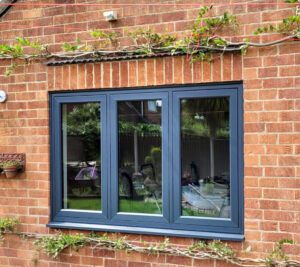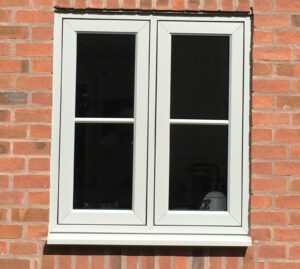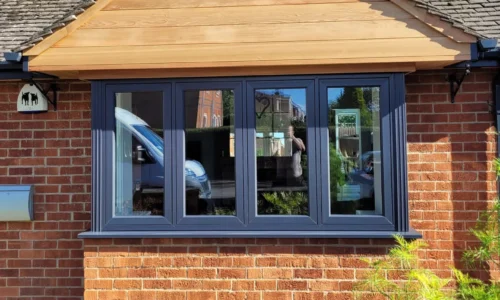Windows are an essential element of your home, contributing to its aesthetics, insulation, and overall value. Like anything else in your home, they do have a finite lifespan. At Southworth Windows, we understand the critical role of windows and the importance of recognising when it’s time to replace them, in order to preserve your home’s comfort and efficiency.
Understanding the Importance of Window Replacement
The process of window replacement can indeed be a significant investment, but it’s one that reaps substantial rewards. Replacing your windows boosts energy efficiency, augments aesthetic appeal, fortifies your family’s safety, and can even escalate your home’s resale value. With modern, high-quality windows, you’ll likely notice a decrease in energy bills, courtesy of improved insulation.
Furthermore, at Southworth, we guarantee your window replacements for 10 years, ensuring you get value from your investment. We source our materials from trusted local Leicestershire suppliers and employ skilled local tradespeople, delivering a level of service that has been honed over 30 years in the industry.

How to Identify When Your Windows Require Replacement
There are numerous telltale signs that your windows need replacement. These signs may include drafts, difficulty in opening or closing, condensation between glass panes, excessive noise seepage, and visible structural damage such as warping or rotting. If you notice any of these signs, it’s an indicator that your window has surpassed its prime and needs to be replaced.
Determining When to Replace Your House Windows
There’s no definitive answer as to when exactly you should replace your windows as it varies depending on factors such as age, condition, and type of windows. Generally, windows that are over 20 years old are prime candidates for replacement. However, this doesn’t necessarily mean that all 20-year-old windows need to be replaced. At Southworth, we encourage homeowners to consider the type and condition of their windows alongside their age.
Recognising When Your uPVC Windows Need Replacement
Unplasticized Polyvinyl Chloride (uPVC) windows are favoured for their durability and energy efficiency. However, they’re not invincible. Signs of yellowing, warping, or cracked or foggy glass in your uPVC windows are a clear indication of the need for replacement. If you notice your uPVC windows failing to provide effective insulation or there are drafts, it’s time to replace them
Identifying a Problem Window
A window might not show visible signs of damage but can still be causing issues. These can include drafts even when closed, water leakage during rainfall, or damaged or rotten frames. If a window consistently presents these problems, it’s time to replace it. Southworth’s experienced team can help identify such issues and advise on the best course of action.
Expected Lifespan of uPVC Windows
On average, uPVC windows last between 20 to 25 years. Factors such as exposure to harsh weather conditions, maintenance practices, and installation quality can impact their lifespan. Regular inspections and prompt repairs, services which Southworth provides, can help extend their life.
Addressing Aging Windows
What about 30-year-old windows? Should they be replaced? The answer, in most cases, is yes. Such old windows are likely, not energy-efficient and could be causing heat loss, leading to higher energy bills. Moreover, they might not meet current safety standards, and their outdated design could mar your home’s aesthetic appeal.
Conclusion:
Window replacement in a timely manner is essential for maintaining your home’s comfort, energy efficiency, and value. Regular inspections can help identify signs of ageing or damage. At Southworth Developments Limited, we’re here to guide you through the process, offering personalised, pressure-free advice based on our extensive experience. Remember, with the right care and attention, your windows can remain a cherished feature of your home for many years.

Questions & Answers:
How do you know if windows need to be replaced?
Drafts, difficulty in opening or closing, condensation between glass panes, excessive noise, and visible structural damage like warping or rotting are common signs that your windows need to be replaced.
How often should double glazing be replaced?
Double glazing typically needs replacement every 20-25 years, but it depends on the quality of installation, weather conditions, and maintenance practices.
How long should uPVC windows last?
On average, uPVC windows last between 20 to 25 years. Factors like exposure to harsh weather, maintenance, and installation quality can affect their lifespan.
How frequently are windows replaced?
Generally, windows should be replaced every 20 to 25 years. However, other factors such as window type, condition, and exposure to harsh weather can influence this timeframe.
Should I replace 15-year-old windows?
If they’re showing signs of damage, difficulty in operation, poor insulation, or drafts, 15-year-old windows should be replaced. If you’re unsure, consult with a professional service like Southworth Windows.
What is the life expectancy of a house window?
The life expectancy varies depending on the type of window, but on average, windows last between 15 to 30 years.
Is it worth replacing old uPVC windows?
Yes, old uPVC windows might not be as energy-efficient as newer models and may lack some of the improved security features. Replacing them can improve your home’s insulation, security, and overall value.
At Southworth Windows, we’re more than happy to assist you in transforming your home and bringing your vision to life. Contact us today at 01509 815196 for personalised advice and high-quality window replacement services.
Posted in Latest News
